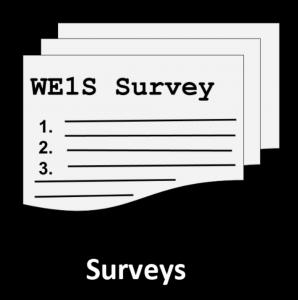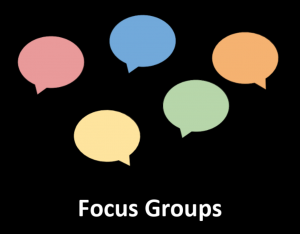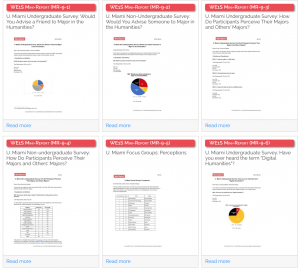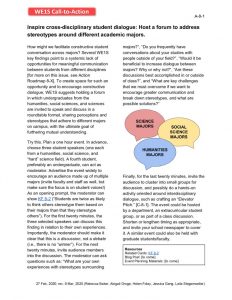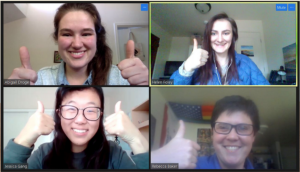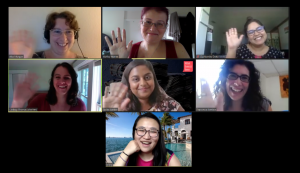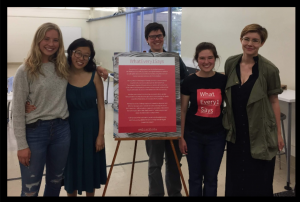WE1S “human subjects” research grounds big data study in our own communities, inspiring local actions that can be scaled and adapted.
What is human subjects research and why include it in a digital humanities project?
In addition to applying digital research methods, WE1S carried out human subjects research pilot
projects at UC Santa
Barbara (Spring 2019) and the University of Miami (Spring 2020) with IRB approval.1 Research consisted of
1) a survey,
open to both undergraduate and non-undergraduate participants, with questions about educational background, the
process of choosing a major, and experiences with the humanities, and 2) a series of focus
groups in which participants discussed their perceptions of the humanities, learned about WE1S’s digital
methods, and gave feedback on selected materials.
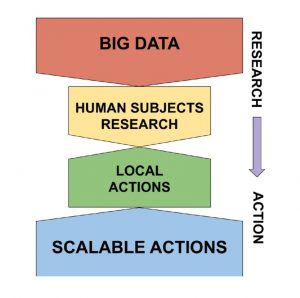
Human subjects research can also help WE1S make recommendations for moving from research to
action. Informed by the interlinked processes of big-data research and human subjects research, we can develop
advocacy practices
directly responsive to our immediate communities and campuses. We can also build from these local experiences to
suggest ways
that others could ask their own research questions and create their own solutions elsewhere.
What did we find?
Based on our Human Subjects Research, we've reached a number of Key Findings, helping us to
understand how
members of
our own communities perceive the humanities and how people experience the relationships between academic majors.
Many of our results can usefully be put in conversation across the University of Miami and the University of
California, Santa Barbara.
Perceptions of the humanities:
(Click on each card for a larger image)








